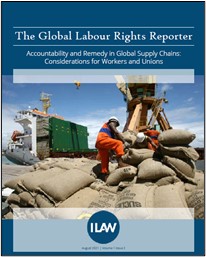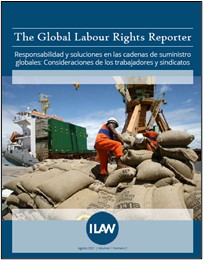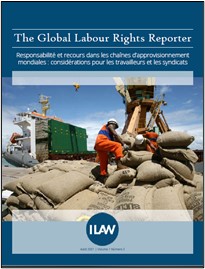For decades, workers, unions, students, and labour NGOs have joined together to try to hold global corporations accountable for the labour violations that have routinely taken place in their supply chains. Multi-faceted and often lengthy corporate campaigns have led to some workers in the supply chains of consumer-facing brands getting some measure of justice. However, “wins” have often been made on a factory-by-factory basis and have been fleeting due to the absence of meaningful reforms to business practices, weak labour laws and dysfunctional labour justice systems. More recently, binding transnational agreements have started to shift corporate behaviour across industries within a country, and litigation in some jurisdictions is putting direct pressure on parent companies and lead firms for what happens upstream. Still, the fundamental rules of the game have not yet been changed, meaning the quest for justice for most workers often remains well beyond reach (and even worse for marginalised groups of workers). Indeed, efforts which have been ongoing since 2016 to negotiate new rules to protect workers in global supply chains at the ILO stalled in 2020 due to concerted employer opposition. The essays and interviews in this issue of the Global Labour Rights Reporter seek to evaluate some of the efforts so far to embed labour rights in global supply chains and look to what might come next.



